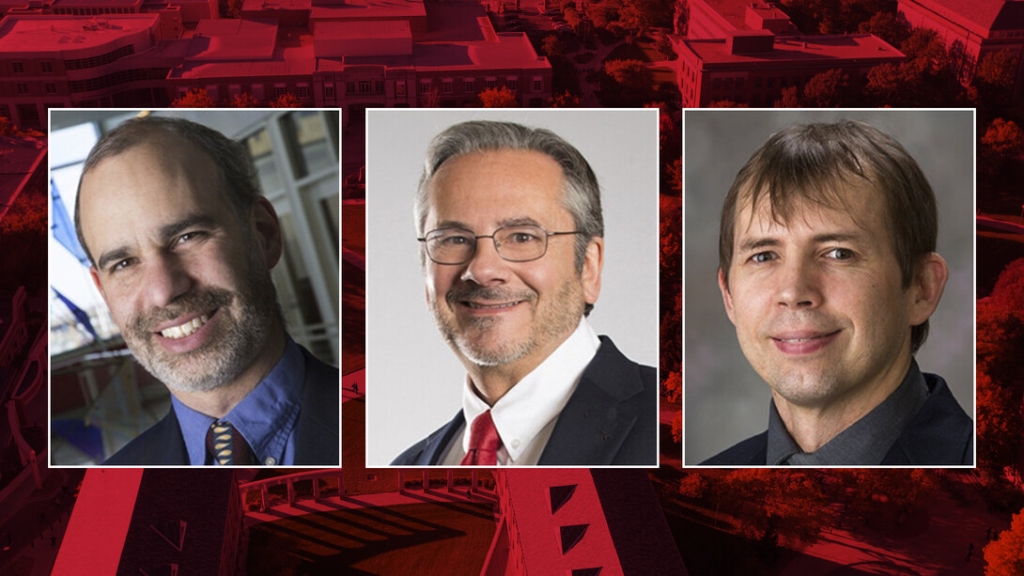University Communication and Marketing, April 9, 2025
Husker physicists part of international team awarded Breakthrough Prize
An international research team that includes Husker physicists Ken Bloom, Daniel Claes and Ilya Kravchenko recently received the 2025 Breakthrough Prize in Fundamental Physics.
The University of Nebraska–Lincoln trio is part of the Compact Muon Solenoid collaboration, one of four at the Large Hadron Collider, which is located near Geneva, Switzerland. The collider is operated by the European Organization for Nuclear Research (CERN).
The prize was awarded to the international team for detailed measurements of the Higgs boson, a tiny particle that helps explain why items in the universe have mass. Key findings that helped earn the award include confirming the symmetry-breaking mechanism of mass generation; discovery of new, strongly interacting particles; study of rare processes and matter-antimatter asymmetry; and the exploration of nature at the shortest distances and most extreme conditions made possible at CERN’s Large Hadron Collider.
Founded in 2012, the Breakthrough Prize recognizes individuals or teams that have made profound contributions to our understanding of the world around us. The honor is open to all physicists — theoretical, mathematical and experimental — working on the deepest mysteries of the universe. Learn more about the award.
Prize money from the award will fund grants for doctoral students from member institutions, including UNL, to spend research time at CERN.
The discovery of the Higgs boson was announced in 2012. Defining the particle’s properties continues to be a research focus.
Bloom, a professor and chair of physics and astronomy, has helped steward a $51 million National Science Foundation grant for 19 institutions nationwide since 2021. Claes and Kravchenko are also professors of physics and astronomy.
Read more about the 2025 Breakthrough Prize in Fundamental Physics.






